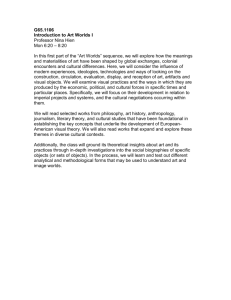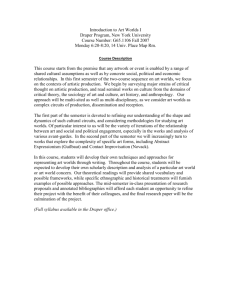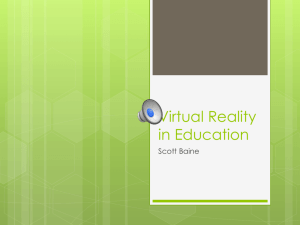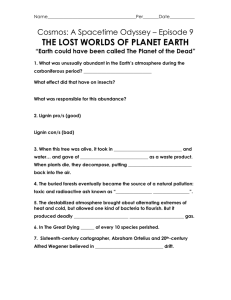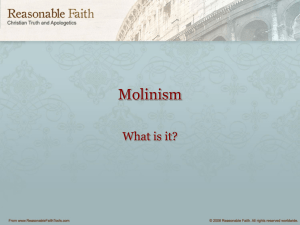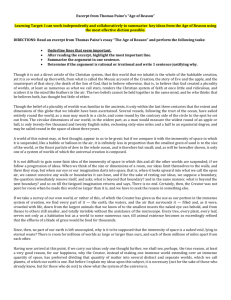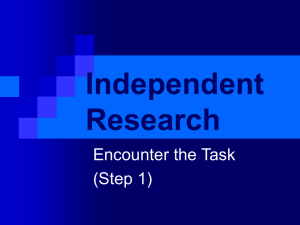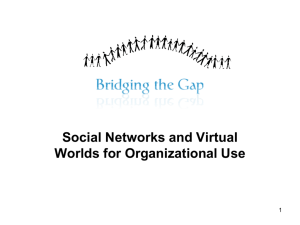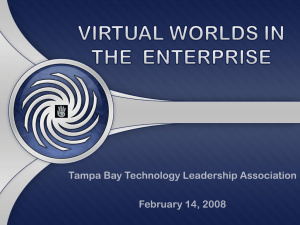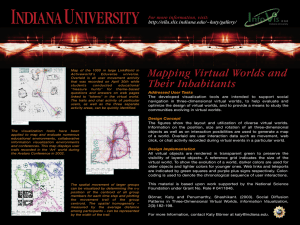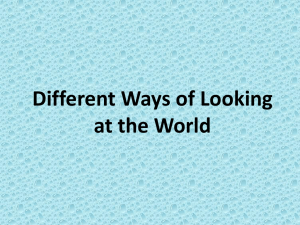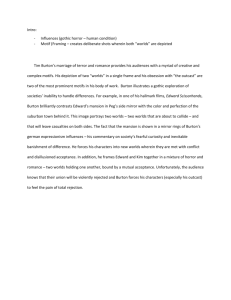How teachers use research– and maybe how they
advertisement
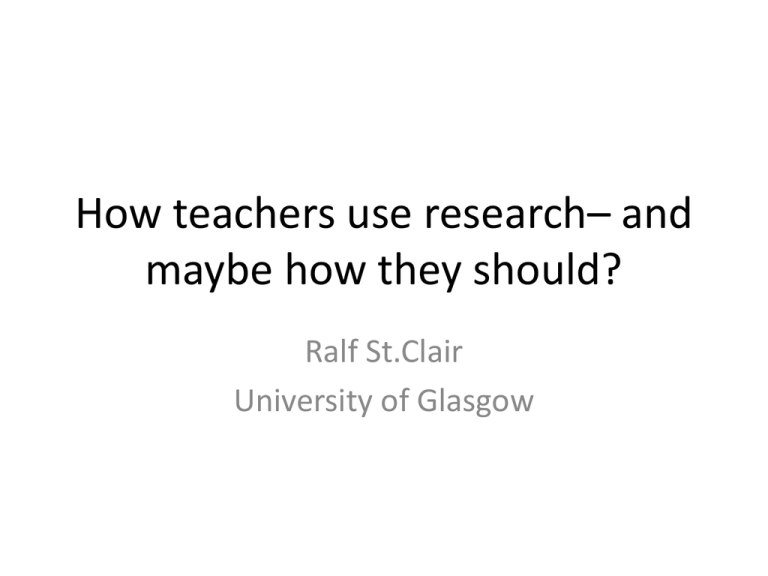
How teachers use research– and maybe how they should? Ralf St.Clair University of Glasgow Contents • • • • Two different worlds Five questions about research Responses to the two worlds Questions for you! Teacher Teacher’s World • • • • Short time to make decisions Practical– need something that works No time for ambiguity If it has worked for another teacher, worth a go • Answers to school, children, parents • Limited exposure to research Researcher Researcher’s World • • • • Need to take time to develop ideas Must be theoretically sound Lives for ambiguity Claims must be carefully justified– anecdotes not enough • Answers to other researchers • Many years of training and experience in research Types of knowledge Teachers’ knowledge is tacit Researchers’ knowledge is explicit (Hayek, idea from the marketplace) “Two worlds” perspective • Teachers and researchers live in different worlds, speaking different languages • The central problem of communication is translation (Hammersley) ...the majority of teachers, counselors, and administrators spend their careers at the receiving end of "manufactured" research products produced in remote university "factories" by unseen research experts. (Quigley, 1997, p.3) What do we know about how teachers use research? Who? • Research (!) shows that most teachers say they value research and like to use it • Few of them can name a piece of research that influenced a decision • Experienced teachers use research more than new teachers • Promoted teachers use it more • Teachers with research training use it more When? • When they really really need to • If it catches their interest • If they are writing a proposal, a plan or a report • Very few teachers just read research for fun What? • Have a broad view of what counts as research, e.g. the newspaper, TV etc. • Prefer research by a known author– credibility of the researcher very important • Reports by other teachers popular • Not too theoretical– judged by familiarity of context How? • Conference presentations and internet • Some academic articles, very few academic books • Asking friends Why? • • • • Making teaching better Justifying teaching decisions Planning Credibility . . . there are a lot of useful things and mainly it's towards the grant writing entity, or proving to United Way why or why not you can make certain gains, or to business or companies that think literacy can be a business (practitioner 11) It just helps the program to run a little more smoothly and a little more cheaply and a little more efficiently, and all of those things (practitioner 9) Summary • Teachers actively choose when to use research and what they will use • These decisions are very different from the decisions researchers would make • Individual pieces of research in articles are rarely used to make a single decision • Experience and values beat research every time (Weiss) So is this a problem? Class size • Teachers think smaller classes are always better • Parents like smaller classes • Smaller classes are MUCH more expensive and require MANY more teachers • Research shows that class size does not affect results very much at all Two different models of teachers 1. Skilled technicians implementing welldesigned procedures 2. Educated professionals making wise decisions Two responses to “two worlds” • Evidence based education • Teacher Action Research Evidence based education • No Child Left Behind Act • “What works” clearinghouse • Creates a huge database of “scientific knowledge” about education • Recommendations based on this huge collection of information BUT! • Research is contradictory • “Scientific” research means Controlled Trials, and these are rare in education and expensive to do • Overlooks values and culture • Assumes teachers are rational in decision making Teacher Action Research • Teachers conduct research in their own classrooms and put the findings into action • Look at questions that are most important to them • Build up knowledge in their school and across their career BUT! • Takes time, and teachers are busy • Need support for the first few times– where from? • Are the results useful to anybody else? Questions for you • Do you think there are two worlds of teaching and research? • Do you think they should talk to each other? • Do you think teachers can be researchers, or should we leave it to the experts? • What might research help us, as teachers, to understand and do? • How will you decide what to do when you are teaching?
